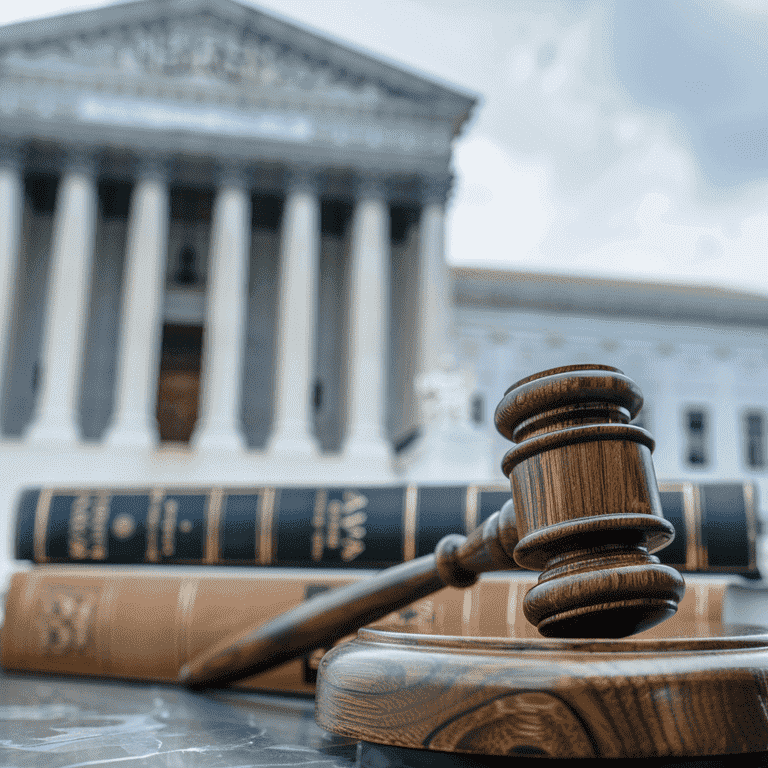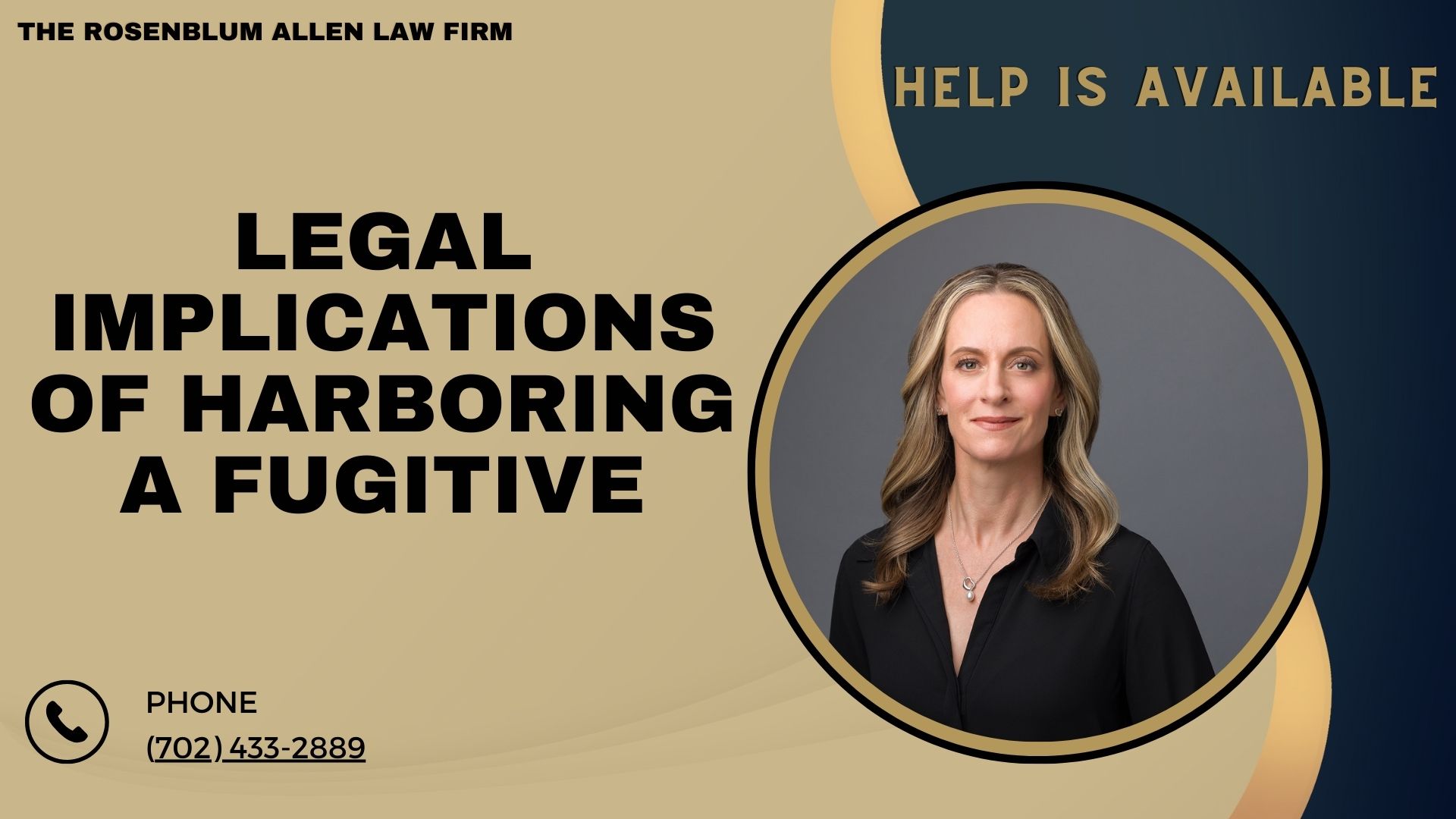Welcome to our comprehensive guide on the complexities of harboring a fugitive. Whether you’re a legal enthusiast, a concerned citizen, or someone navigating through a complex situation, understanding the intricacies of this subject is crucial. This guide will delve into what it means to harbor a fugitive, the legal frameworks governing this act, and the consequences that follow. Our aim is to inform and engage you with insights that could be pivotal in real-world scenarios.
Harboring a fugitive has significant legal implications, yet it’s a topic shrouded in mystery and misunderstanding. At its core, this illegal act involves providing shelter, protection, or assistance to someone evading law enforcement. But what does this entail? And why is it essential for you to know about it? This guide promises to unpack all these layers, offering clarity and addressing the legal ramifications of harboring a fugitive.
 Definition and Legal Framework
Definition and Legal Framework
Definition of Harboring a Fugitive
At first glance, “harboring a fugitive” might seem straightforward. However, the legal definition is more nuanced. To harbor a fugitive means to knowingly provide refuge, aid, or support to someone seeking to escape the law. This can include offering them a place to stay, providing financial assistance, or even helping them evade the police.
Historical Context and Evolution of the Law
The laws surrounding harboring a fugitive have evolved significantly over time. Initially, these laws were rooted in community responsibility and the notion that it was everyone’s duty to assist in capturing criminals. Today, they serve as a deterrent against obstructing justice and ensure that individuals cannot aid in evading law enforcement without facing consequences.
Federal vs. State Laws on Harboring a Fugitive
Federal Statutes and Penalties
At the federal level, harboring a fugitive is addressed under 18 U.S.C. § 1071. The statute delineates the offense as providing “concealment” to a person with an outstanding arrest warrant, intending to prevent their discovery and arrest. Penalties can include fines and imprisonment, depending on the severity and nature of the fugitive’s crimes.
Variations in State Laws
State laws on harboring a fugitive can vary widely. Some states may impose stricter penalties, especially if the fugitive is wanted for serious crimes. However, harboring can lead to severe legal consequences regardless of the state.
- Example: In California, harboring, concealing, or aiding a fugitive is covered under California Penal Code 32 P.C., which can be treated as a felony or misdemeanor based on the circumstances.

Legal Elements of Harboring a Fugitive
Certain legal elements must be met to be charged with harboring a fugitive. Understanding these can help clarify what actions or intentions might constitute a violation of the law.
Knowledge of the Fugitive’s Status
The person harboring a fugitive must know that the individual they are helping has committed a crime or is sought by law enforcement. Ignorance of the fugitive’s status can sometimes serve as a defense.
Act of Harboring or Concealing
Providing any assistance to help the fugitive evade capture falls under this category. This could range from offering a hiding place to giving financial support or even misleading the authorities.
Intent Behind Harboring a Fugitive
The intention to prevent the arrest of the fugitive must be proven. It’s the difference between knowingly assisting a criminal and unwittingly helping someone who happens to be a fugitive.
- Direct Support vs. Incidental Assistance: There’s a fine line between actively hiding a fugitive and incidentally providing help without awareness of their status. The former carries legal penalties, while the latter might not.
Examples of Actions Constituting Harboring
- Providing shelter or a place to hide
- Offering financial assistance or resources
- Helping the fugitive escape or evade capture
- Misleading law enforcement to protect the fugitive
Through these initial sections, we’ve begun to peel back the layers of what it means to harbor a fugitive and the legal frameworks that define this act. Stay tuned as we further explore the penalties, defenses, and societal implications in the following sections.
Facing charges for harboring a fugitive is serious business, and it’s crucial to understand the weight of the consequences. The penalties can be severe, impacting your freedom and future.
Federal Penalties for Harboring a Fugitive
Under federal law, the penalties for harboring a fugitive can range from fines to imprisonment. The duration of imprisonment can vary significantly based on factors like the severity of the fugitive’s crimes and the level of assistance provided.
- Acceptable: A possible financial penalty, the amount of which can vary.
- Imprisonment: Time behind bars could range from a few months to several years.
State Penalties and Differences
State laws add another layer of complexity. Each state has its own set of rules and penalties for harboring a fugitive, which can differ widely from federal statutes and from one state to another.
Impact on Criminal Record
A conviction for harboring a fugitive on your criminal record can have long-term consequences, affecting employment opportunities, eligibility for specific licenses, and even your ability to vote or own a firearm.
Potential Civil Liabilities
Beyond criminal penalties, fugitives may also face civil lawsuits, especially if they committed crimes that caused harm to others while being harbored.

Defenses to Harboring a Fugitive Charges
Being accused of harboring a fugitive doesn’t mean the end of the road. Depending on the circumstances of the case, several defenses can potentially be used.
Lack of Knowledge
One of the most common defenses is claiming that you were unaware the individual was a fugitive. Remember, knowledge of the fugitive’s status is critical to the crime.
Duress or Coercion
This defense might apply if you were forced or threatened into harboring a fugitive. Proving duress can absolve you of responsibility if you demonstrate that you acted under threat of harm.
Mistake of Fact
Similar to lack of knowledge, a mistake of fact defense argues that you were unknowingly misled about the situation, leading you to assist a fugitive.
Relationship Exceptions
Some laws provide exceptions for spouses or close family members, arguing that familial bonds might compel one to act against the law. However, this defense has its limits and varies by jurisdiction.
- Family Members and Close Relationships: Legal protections for spouses or family members.
- Legal Protections and Limitations: Understanding the extent and limitations of these exceptions.

Legal Processes and Proceedings
Navigating the legal system can feel like finding your way through a labyrinth. Here’s a simplified roadmap of what to expect if you’re involved in a case concerning harboring a fugitive.
Investigation Process
The journey often starts with an investigation. Law enforcement will gather evidence, including surveillance, interviews, and examining financial records.
Arrest and Charges
If there’s sufficient evidence, an arrest follows. Charges are formally presented, outlining the laws believed to have been violated.
Court Proceedings
The court proceedings start with an initial hearing, followed by possible pre-trial motions, the trial itself, and, if convicted, sentencing. Each step in this process offers opportunities for defense and negotiation.
- Initial Hearing to Sentencing: A step-by-step journey through the legal process.
- Possible Outcomes and Appeals: Understanding potential verdicts and the appeals process.
Through these sections, we’ve explored the thorny terrain of harboring a fugitive, from the heavy penalties and defenses to the intricacies of legal proceedings. Remember, knowledge is power, but seeking professional legal advice is always the best course of action when in doubt.

Avoiding Legal Troubles
Staying legal is crucial. This is especially true for serious matters, like harboring a fugitive. Here’s how you can avoid finding yourself in a legal bind.
Guidelines for Lawful Conduct
Stay Informed: Understanding your legal obligations is the first step to avoiding trouble.
Be Cautious: If you suspect someone might be a fugitive, proceed cautiously and consider the potential legal consequences of assisting them.
Actions to Take if Aware of a Fugitive
Do Not Panic: Keep a level head and avoid making hasty decisions.
Avoid Direct Assistance: Do not provide shelter, financial assistance, or any aid considered harboring.
Contact Law Enforcement: If you feel safe and appropriate, consider informing the authorities about your suspicions.
Legal Obligations and Rights
Obligation to Report: In some cases, you have a legal obligation to report knowledge of a fugitive to law enforcement.
Right to Remain Silent: Remember to remain silent and seek legal counsel before speaking to the police.
Importance of Seeking Legal Counsel
When in doubt, the best action is to consult with a legal professional. They can give guidance tailored to your situation. They can help you navigate legal pitfalls.

Impact on Society and Ethical Considerations
The act of harboring a fugitive affects more than just the individuals directly involved; it has wider societal implications and raises several ethical questions.
Societal Implications of Harboring Fugitives
Undermining the Justice System: By aiding fugitives, one indirectly challenges the effectiveness of our legal system.
Safety Concerns: Harboring individuals wanted for serious crimes can pose risks to community safety.
Ethical Dilemmas and Moral Responsibilities
Protecting Loved Ones vs. Upholding the Law: What happens when the fugitive is a close family member or friend? This scenario can lead to significant ethical dilemmas.
The Greater Good: Is there ever a justification for harboring a fugitive if it’s believed to serve a higher moral purpose?
Case Studies and Historical Examples
Case Study 1: This case study examines how someone unintentionally became involved in harboring a fugitive and the legal aftermath.
Case Study 2: An analysis of a situation where harboring a fugitive was motivated by ethical beliefs, exploring the legal and moral implications.

Breaking It All Down
Harboring a fugitive is tricky. It involves many legal, ethical, and societal threads. This guide has navigated the maze of legal definitions, consequences, and defenses. It helps you understand how serious the act is. We’ve also touched on how to avoid legal troubles and the broader impact on society and ethics.
Remember, the law might seem scary. But, it’s meant to uphold justice and ensure safety. Being informed is your first line of defense against unwittingly crossing legal boundaries. If you ever find yourself in uncertain territory, seek legal advice. It’s not just a right, but a wise choice. Together, we contribute to the safety and integrity of our communities. We do this through awareness and responsible actions.

Frequently Asked Questions
Can I be charged with harboring a fugitive if I didn't know the law wanted them?
If you genuinely didn’t know the person was a fugitive, this lack of knowledge could serve as a defense. But, the specifics of the case matter, and it’s up to the court to determine the credibility of your claim.
Is it illegal to talk to a fugitive?
Merely speaking to a fugitive is not illegal. But, helping them could lead to charges. This help could include giving advice on evading capture or any other form of support.
What should I do if a family member is a fugitive and comes to me for help?
This situation is complex and fraught with emotional and legal challenges. Some places offer limited family protections. But, it’s crucial to think about the legal effects. Seeking legal advice immediately is the best course of action.
Can harboring a fugitive impact my ability to travel?
Yes, a conviction for hiding a fugitive can impact your travel. This is especially true for international travel. Some countries may deny entry to individuals with certain criminal convictions.
Are there any circumstances under which harboring a fugitive is considered legal?
In very few circumstances, harboring a fugitive is considered legal. There might be exceptions in complex cases, such as giving aid. But, these cases are rare and subject to legal review.
How do I report someone I suspect is harboring a fugitive?
If you suspect someone is hiding a fugitive, you can report your suspicions to local police or the FBI. To avoid false accusations, ensure that you base your suspicions on credible information.
Can I face legal repercussions for accidentally providing aid to a fugitive?
Accidentally providing aid might lead to charges. But, this only happens if you know the person is a fugitive. But, it could get more complicated. This would happen if it’s found that you should have reasonably known about their status.
What are the risks of not reporting a fugitive?
Choosing not to report a fugitive can lead to criminal charges. This is especially true if you know their status and actively hide them. The legal risks include potential fines and imprisonment.
Does the severity of the fugitive's crime affect the charge of harboring a fugitive?
The severity of the fugitive’s crime can affect the harboring charge’s seriousness. It also affects the resulting penalties. Harboring someone wanted for a worse crime might result in harsher legal consequences.
How can I protect myself legally if I come into contact with a fugitive?
The safest action is to avoid helping and to contact law enforcement if it is safe and right. If you need more time, get legal advice now. It will help you understand your rights and duties.

Additional Resources for You
Here are some of the comprehensive resources created by Molly Rosenblum Allen, Esq., tailored to meet your specific legal needs:
- Criminal Defense Attorneys: Effective legal defense for a wide range of criminal charges. Learn more
- Las Vegas DUI Lawyer: Dedicated support and defense strategies for DUI charges. Explore options
- Domestic Violence Lawyer Las Vegas: Compassionate and robust defense for domestic violence allegations. Find support
- Drug Possession Lawyer: Specialized legal advice for drug possession charges. Get help
- Sex Crimes Attorney: Discreet and effective defense for sex crime accusations. Discover resources
- CPS Defense Attorney: Legal assistance for cases involving child protection services. Seek guidance
- Misdemeanor Lawyer: Expertise in handling misdemeanor charges and their implications. Learn more
- Las Vegas Warrant Defense Attorney: Assistance in resolving outstanding warrants and related legal issues. Explore options
- Las Vegas Probation Violation Attorney: Support for cases involving probation violations. Find support
- Theft Crime Defense Lawyer: Defense strategies tailored for theft crime allegations. Get help
- Kidnapping Lawyers: Legal representation for kidnapping charges, ensuring your rights are protected. Discover resources
- Juvenile Defense Lawyers: Specialized defense for juveniles facing criminal charges. Seek guidance
- Firearms Lawyer Las Vegas: Effective legal advice for firearms-related charges. Learn more
At The Rosenblum Allen Law Firm, we understand the stress and uncertainty that legal challenges can bring. That’s why we’re committed to providing you with the resources and representation you need to navigate through these difficult times successfully.

Outside Resources for You
American Bar Association (ABA): A leading national organization providing resources for legal professionals and the public on various legal topics. Visit ABA
National Association of Criminal Defense Lawyers (NACDL): An organization dedicated to ensuring justice and due process for persons accused of crimes. Visit NACDL
FindLaw: A comprehensive resource offering legal information, a lawyer directory, and articles on a wide range of legal topics. Visit FindLaw
Justia: Offers free case law, codes, regulations, legal articles and legal blog databases, as well as community resources. Visit Justia
National Legal Aid & Defender Association (NLADA): America’s oldest and largest nonprofit association devoted to excellence in the delivery of legal services to those who cannot afford counsel. Visit NLADA
Avvo: Provides detailed information on lawyers and legal issues so that you can make the choices that are right for you. Visit Avvo
Public Defender Service for the District of Columbia (PDS): An organization dedicated to providing and advocating for effective and zealous defense services. Visit PDS

A Special Message from Our Lead Attorney, Molly Rosenblum Allen, Esq

Dear Reader,
Thank you for taking the time to engage with our resources. I hope you found the info helpful. It can aid your understanding of your legal situation. At The Rosenblum Allen Law Firm, we commit to offering high-quality legal help. It tailors to each client’s unique needs.
Navigating the legal system can be daunting, but you don’t have to face it alone. My team and I are here to offer our expertise and support. Whether your case is challenging or you need legal advice, we are ready to help. We will help you understand your options and work for the best outcome.
We invite you to discuss how we can assist you further. Please call us at (702) 433-2889 to get the ball rolling on your situation. Your concerns are important to us, and we are eager to support you.
Warm regards,
Molly Rosenblum Allen, Esq.
The Rosenblum Allen Law Firm



